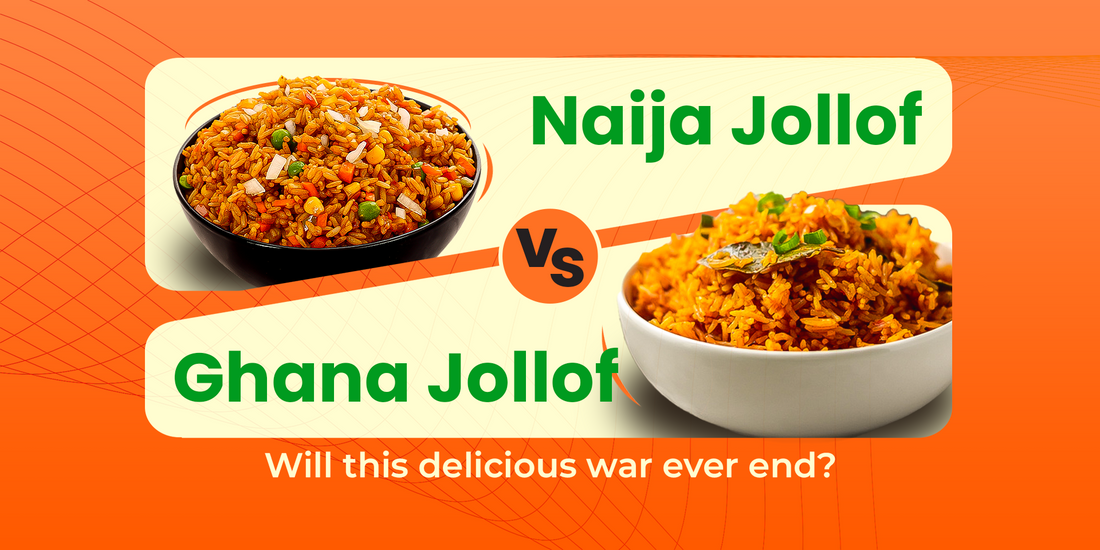
Naija vs Ghana Jollof: Will This Delicious War Ever End?
Share
If you’re African or even friends with Africans, you’ve probably heard about the age-old debate: Nigerian Jollof vs. Ghanaian Jollof. It’s less of a food fight and more of a cultural love story (with a bit of playful shade), sometimes we even extend our bants to Music and football
Let’s be honest: whether it’s cooked with basmati or long-grain parboiled rice, simmered in rich tomato stew, or spiced up with secret family ingredients, one thing is clear, Jollof is the ultimate African party guest.
The Nigerian Side
Ask a Nigerian, and they’ll swear on suya sticks and puff-puff that their Jollof reigns supreme. Smoky, spicy, and cooked over firewood for that unforgettable flavor, Nigerian Jollof is bold and unapologetic just like the people.
The Ghanaian Side
Ghanaians, however, are not here for jokes. They’ll tell you their Jollof is perfectly balanced, less fiery but deeply flavorful, made with fragrant basmati rice that soaks up every drop of stew. Some say it’s more refined. Ghanaians say it’s simply unbeatable.
The Diaspora Twist
Now imagine Africans in the U.S. hosting cookouts, Naija and Ghana Jollof facing off in aluminum trays. The Nigerians bring their firewood-smoked heat, the Ghanaians bring their basmati elegance, and the Americans? They just keep coming back for second plates.
So, Who Wins?
The truth is, there’s no real winner. The joy of Jollof is in the laughter, the teasing, and the fact that it brings people together. Naija or Ghana, it doesn’t matter, the pot is always empty by the end of the night.
And if you’re craving the taste of home, whether Nigerian or Ghanaian Jollof, you don’t need to wait for a wedding party. Stock up on your essentials like rice, spices, Maggi cubes, and more from MamaJones and recreate the magic right in your U.S. kitchen.
Shop African Ingredients for your Jollof Rice Here
